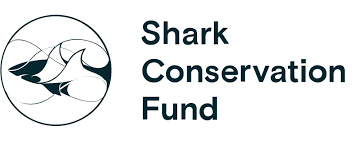
The Shark Conservation Fund (SCF) is here to restore the ocean through shark and ray conservation.
The Shark Conservation Fund is a collaboration of philanthropists dedicated to restoring ocean health through sweeping shark and ray conservation. Our goal is to help maintain the vibrancy of the world’s oceans by halting the overexploitation of sharks and rays and to prevent extinctions through strategic, collaborative, and catalytic grantmaking. In doing so, we work to protect the world’s marine resources by promoting sustainable policies and robust and enforceable trade regulations.
We’re delighted to be partnered with the Shark Conservation Fund and supporting their work to restore the ocean and #helpsaveourseas.

